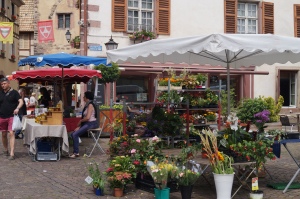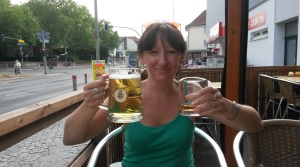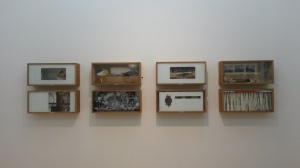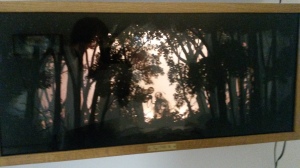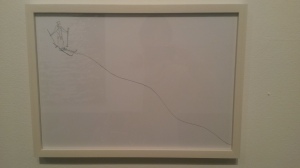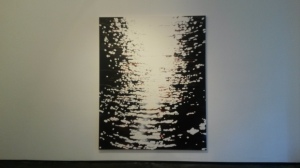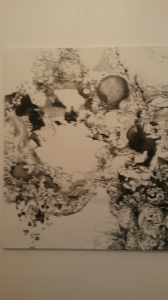I woke up the next morning to find Manfredas dancing around the room with a slice of raisin bread the size of my suitcase in his hand. It seemed it was market day. (And yes, you read that correctly – I slept through him showering, leaving, going for a coffee and exploring the market. This is thanks to a combination of German-early-risingitis and excellent earplugs.)
I hopped (sort of) out of bed, pulled on my slippers (that Manfredas had packed for me) and put on the kettle to make a cup of tea (with one of the tea bags he’d also packed). German men just keep on giving…
Manfredas: I texted the owner for the wifi code.
Me: What did she say?
Manfredas: (showing me his phone) Sur le meuble dehors dans le couloir ou se trouve les livres!!!
Me: She forgot an accent. “Où” is where; “ou” is or. And three exclamation marks is excessive.
Yes, I’m even a grammar nazi in languages I barely speak. We located the code, which was so long and complicated that even a German would be impressed. I simply gave up. Instead, I made my way to our sun-dappled petit jardin with my tea and hunk of bread.
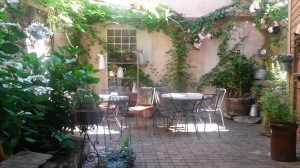
We discussed our plan for the day which was basically no plan at all. Perfect. After surviving the bathroom, we made our way down the main street to the market. They’d closed the street to traffic because of it – it seems that being able to buy cheese, meat and wine is far more important than being able to get from A to B in these parts. Gotta love the French for that.
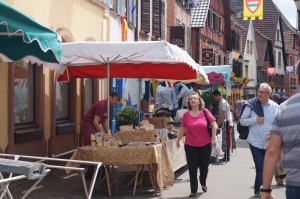
A little kid came running up to us with a basket of fresh bread which we nibbled on as we strolled around the gorgeous streets.
As we walked, I thanked my lucky stars that it hadn’t been one of these that had shat on me the night before…
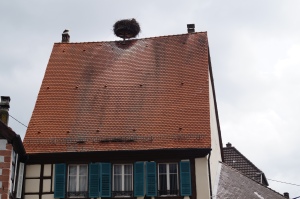
After a couple of hours of meandering, and with the sky starting to look a bit threatening, we stopped off for a bite to eat and the first (but certainly not the last) glass of wine of the day.
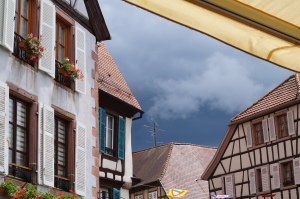
The heavens opened just after we sat down and, around half an hour later, we got to see a man drenched as the awning collapsed under the weight of the water. It was time for another carafe of wine to celebrate that it hadn’t been us.
Once the sun came out again, we made our way to the tourist information office where I picked up enough leaflets to open my own office. We also learned about the Petit Train Touristique and, as luck would have it, it was leaving in around ten minutes. We strolled over to the pretty park at the edge of town, paid our fares and got on.
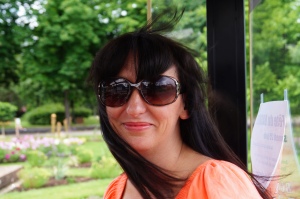
The tour would take us through the steep, winding streets of the town, out into the rolling hills and vineyards beyond, through the town of Hunawihr, and give us a panoramic view of the three castles that dominate the landscape. All in just 50 minutes. Who could ask for more?
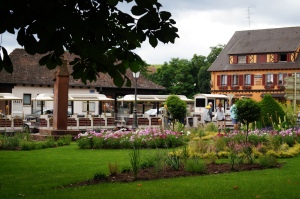
There was an audio guide in eight different languages so we popped on our headsets and off we bumped. It was so much fun taking up the entire street and just praying that we wouldn’t meet anything coming the other way. Pedestrians scattered and I gleefully gave them the royal wave as we passed. The scenery in this part of the world is just breath-taking.
Not even the English twat doing the commentary and pronouncing “Riesling” as “Rise-ling” could dampen my spirits. Back in town, I discovered that the French take shit just as seriously as the Germans do.
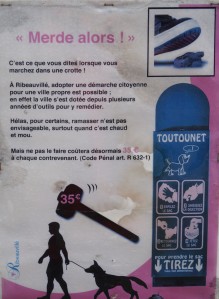
Having recovered myself somewhat, we decided that it was time for a little dégustation. We headed for one of the many options dotting the main street.
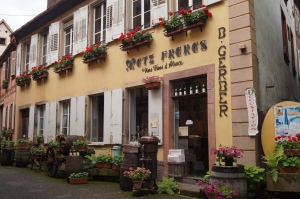
We tried the Rise-ling, which was lovely, but the Pinot Blanc was the clear winner for both of us. Obviously, they do sort of expect you to buy something at these places so we picked up a bottle for a little nap-cap. It had been an exhausting day, after all…
By the time we were ready to hit the town again, the town had all but shut down. A couple of places we tried had already closed their kitchens – at 9pm. We persevered and finally found somewhere. The evening was a bit chilly so I had a hearty, traditional beef stew. (It did not photograph well.)
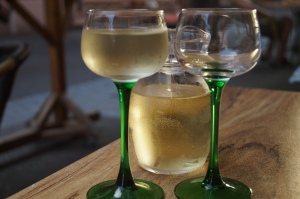
After realising we were the only two people left, we paid up and let the wait staff go home to bed. Even though Ribeauvillé is far enough removed from Berlin so as to appear to be on another planet, old habits die hard. Going home at 10.30 on a Saturday night? NEIN!
Thankfully, we found the rather German-sounding Bar Streng up a side street. After a couple of minutes, I got chatting to Caroline – part-time waitress, part-time vineyard worker.
Moi: Oh my god! That would be my dream job!
Caro: Well, I start at 6am on Monday – you’re more than welcome to come along.
Moi: Maybe another time…
I’m probably far better at drinking wine than I would be at making it – but I guess we’ll never know for sure.
Stay tuned for Part 3 – coming soon!

